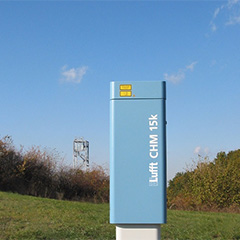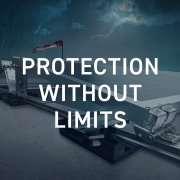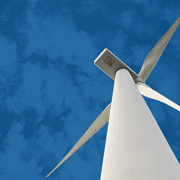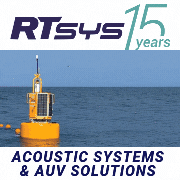Fellbach, Germany, March 12, 2015 – The DWD (Deutscher Wetterdienst meaning German Weather Service) is convinced, that a large number of cloud height sensors CHM 15k from the company G. Lufft will be used in the future. In a tender starting in September 2014 the meteorological institute stated, that overaged models will be replaced by over 100 Lufft sensors step by step.
Among others, 103 synoptic measurement points, seven German army stations and a weather station at Berlin-Tegel will be re-equipped. In addition, seven to ten circulation and replacement units as well as three completely new ceilometers are planned. That makes a total of 122 units, which will be delivered and installed within the next 4 years – a record contract for the new business field “Optical Sensors” of the measurement and control systems manufacturer from Fellbach, Germany. This business area was acquired from Jenoptik in April last year and incorporated into the Lufft world. It’s one amongst three other sectors for traffic, meteorological and industrial applications. As Lufft is ideally specialized for the meteorological niche business, overtaking and incorporating former Jenoptik products has confirmed as a good choice again through the DWD contract.
After the successful decision phase, the tension is finally relieved: In February 2015, the decision was taken. The Lufft CHM 15k cloud height sensor features high quality and precision. “Our principles are: Quality, honesty as well as fast and open communication. This why we could convince the jury of the DWD,” says CEO Klaus Hirzel. The Lufft products will replace old products, but another sixty CHM 15k ceilometers DWD acquired in 2006 are not affected by the exchange.
The DWD, the largest German Weather Service, is a very important customer in the German meteorology sphere with very high standards. Equipped with durable laser sources, filters, a narrow bandwidth and high-sensitivity photodetectors, the CHM 15k meets these requirements. With a measuring range up to 15 kilometers the CHM 15k sets itself apart from its competitors and still works accurately and reliably. The instrument detects cloud bases, penetration degrees, boundary layer heights, vertical visibility, several layers of clouds and cirrus clouds. It uses the so-called LIDAR technology for high-resolution aerosol profile measurement, of which was reported about detailed in last year’s August issue of the Meteorological Technology International magazine.























